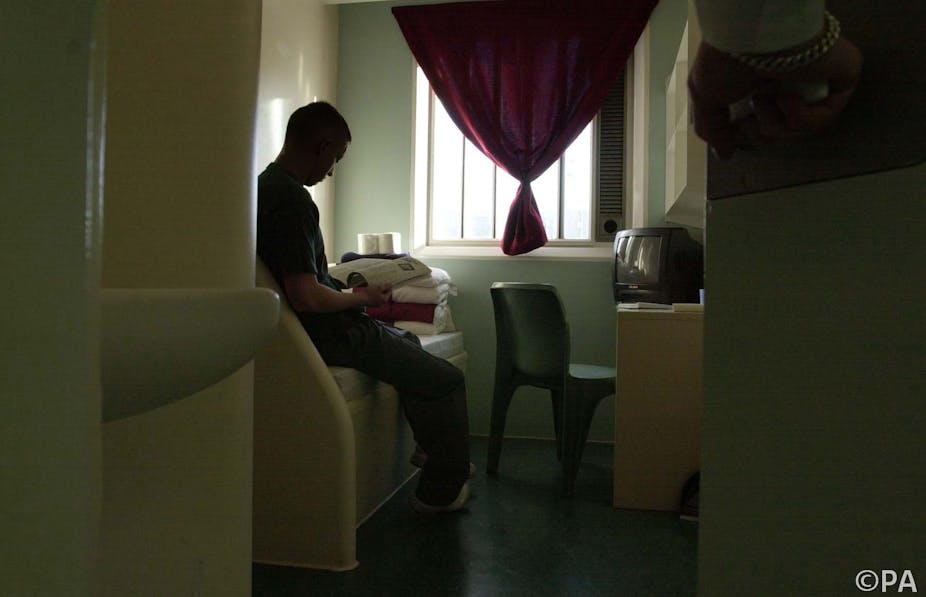The idea of prisoners having sex upsets people; it offends our sense that prison is a place of punishment not pleasure. But sex still happens, maybe more than we like to think.
And if it is happening, don’t we have an obligation to make sure it is safe like providing prisoners with condoms? Because the risks are not just for the prisoners having sex, but also for the general public when prisoners are released and they have sex with their partners outside prison.
The male prison population needs to be a higher priority. Research shows male prisoners are more sexually active in the community than the general population and have more lifetime sexual partners. Providing appropriate sexual health services within prisons will have a positive effect, not only on the individual health of prisoners but also on the wider community at large.
Not everyone agrees. In 2005, the idea of giving condoms for prisoners to halt the spread of HIV and hepatitis C was condemned by the Conservative Way Forward group. A spokesman for the Conservative Way Forward group told the BBC: “Most people who’ve been victims of crime don’t expect prisoners to be going into jail and having sex and getting involved in relationships. I think it’s entirely unacceptable and the encouragement of it is pretty wrong in the eyes of most right-thinking individuals.”
What I find unacceptable is pretending things are not happening and allowing the risks to pile up without doing anything about it. In the prison population there are significantly higher rates of HIV and hepatitis C than in the general population.
Similarly, UK prisons do not offer clean needles to allow prisoners who are injecting drugs to protect themselves from HIV infection. Although needle exchanges have been successfully introduced in prisons in other countries in Europe, we’ve been unwilling to do the same. As a result many prisoners at risk from injecting drugs before going to prison can then pass these infections on in prison, through sharing needles and unprotected sex.
Prison governors have a duty to work with healthcare providers to promote healthy lifestyles to prisoners and to provide an equivalent standard of healthcare to the general population, including sexual health promotion, disease prevention and drug treatment. NHS England has stated that all people in prison should be made aware of how to get condoms. Unfortunately, many prisons are not doing this.
To add to this, prisons are counted as “public places” and so sex is forbidden. The prison service has also voiced concerns about supplying condoms to prisoners for fear of being seen as encouraging “homosexual activity” within prisons.
Condoms can be prescribed to prisoners if, in the clinical judgement of a doctor, there is a risk of HIV or other sexually transmitted disease but this varies from prison to prison.
Some prisoners also prefer not to ask for condoms because to do so makes it clear that they are having sex and they fear the repercussions. For example, if prisoners are suspected of being in a sexual relationship with another prisoner they are often moved to an alternative wing or prison.
What we need to do is confront the realities and as with any other area of health concern provide an evidence-based approach that can reduce the risks and promote health. We must not let our prisons become breeding grounds for uncontrolled infection that will inevitably enter the general population as prisoners are released.
Prison is for punishment but it is also about rehabilitation and getting people to take responsibility for their actions. Using condoms is the responsible thing to do so we should encourage that. We cannot afford to let our fears and sensibilities about sex and drugs interfere with the need for a sensible policy approach that protects us all.

